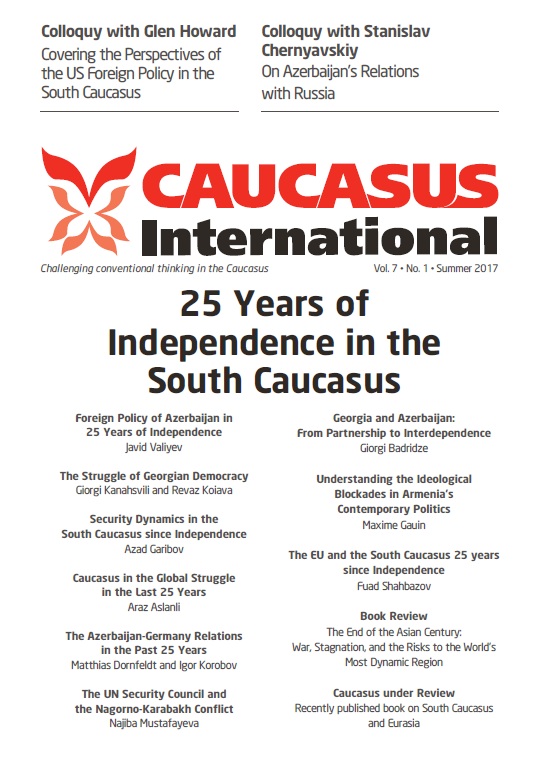Colloquy with Glen Howard - Covering the Perspectives of the US Foreign Policy in the South Caucasus
The United States of America has always been an important player in the geopolitical scene of the South Caucasus, ever since the region regained its independence from the collapsing Soviet Union in 1991. While the US has never had the same level of interest or involvement in the South Caucasus as the region’s three immediate neighbors, Russia, Turkey and Iran, relations with the US have always been very important for the South Caucasus countries as a counter-weight against the overwhelming influence of bigger neighbors, particularly that of Russia. US engagement with the South Caucasus countries has waxed and waned during the course of the past two and a half decades, depending on the global processes and the specific strategies of the administrations in Washington. It experienced its peak during the Bush Administration’s military campaign in Afghanistan and has recently seen a significant decline after the Obama administration initiated the reset policy with Russia in 2009.
Latest news
- 03/17/2020 Call for Submission: “Non-Alignment Movement and Its Perspective in International Affairs”. Deadline: 1 July 2020 2626 views
Popular articles
- 02/24/2020 The Role of Irredentism in Russia’s Foreign Policy 2536 views
- 02/24/2020 Construction of sub-national identity vis-à-vis parent state: Gagauz case in Moldova 2218 views
- 02/24/2020 The Conflict in Ukraine - The Geopolitics of Separatism and Divergent Identities (Commentary) 2072 views
- 02/24/2020 The Role of the Soviet Past in Contemporary Georgia 2044 views





